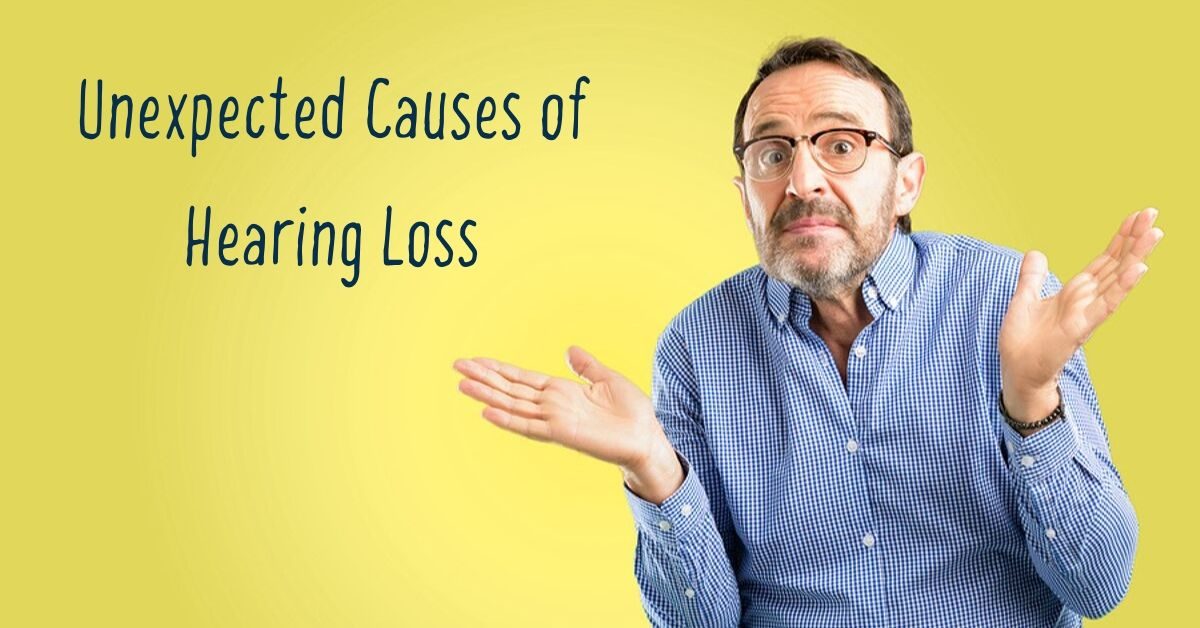- As an Invisible Condition, Hearing Loss Often Goes Ignored - October 17, 2022
- All About Assistive Listening Devices & More - October 1, 2022
- Tired of Loud Restaurants? Time for a Hearing Test! - September 17, 2022
For many of us, hearing loss comes as a product of aging. It is the third most prevalent chronic health condition in the United States, although statistics do show 65% of the people with hearing loss are below what would be considered the retirement age.
Getting yearly hearing evaluations at Encore Hearing Care should be part of your health regimen. If you’ve never had a hearing evaluation, contact us today to schedule one! Regardless of where you are in your health journey, you need to be aware of your hearing health. While age is one cause of hearing loss, there are other causes, too. Noise, and loud noise, is all around us and care should be exercised to safeguard your hearing.
Hearing Hazards Around Us
Most of us are aware that noise is harmful to our hearing health. Hearing protection is routinely issued to employees on noisy job sites like construction and factory workers. Even firefighters are issued hearing protection due to their exposure to sirens as part of their job. Individuals who enjoy noisy hobbies like trap shooting or motorcycling or even race car driving, wear noise-cancelling headphones. Musicians wear custom earmolds to protect their hearing. And, we can help with custom ear protection at Encore Hearing.
Some noise sources may be unexpected, and they are still dangerous. Healthy Hearing did a survey of 169 U.S. residents about noise in their lives and the results came back that – we live with noise and noise damage can come from a variety of unexpected sources. About 35% of the survey respondents said they routinely include parades as part of their summer and Fall activities. The sound levels of sirens from vehicles in a parade as well as some of the marching bands can be damagingly high. Even spending a lot of time at the dog park with barking dogs or volunteering at an animal shelter could damage your hearing.
How Loud is Too Loud?
Sound is measured decibels. The National Institute on Deafness and other Communication Disorders says sound at a decibel level of 75 or lower is generally considered safe. As a reference point, the average conversation between two people usually registers at 60 decibels. Sounds over 85 decibels can cause noise induced hearing loss which is a permanent condition affecting as many as 48 million adult Americans. The louder the sound, the faster it can cause permanent hearing damage. As a point of reference, normal conversation registers at 60 decibels.
Unexpected Hearing Hazards
Most forms of transportation, we use either for work or play, are noisy. Changes in the materials that go into today’s car interiors make them quieter when the windows are up. Normal freeway traffic has been measured at 70 decibels, heavy traffic weighs in at 85 decibels and motorcycle sound measures at a hefty 100 decibels. Emergency vehicles with sirens going can hit the 115-decibel mark.
Every day drivers who have the windows rolled up most of the time are fine, but cab and bus drivers who spend more time on the roadways could be susceptible to noise induced hearing loss.
Other Unexpected Hearing Hazards
Depending on what kind of dog, a bark can reach between 80 and 90 decibels. While your dog is not likely barking eight hours a day with you at home – kennel help, dog groomers, people who show dogs and are at venues with lots of barking dogs, and vet techs could be at risk to develop hearing loss due to noise. The sound level in a kennel can reach 115 decibels and clippers and blow dryers’ rate 100 decibels of noise.
Believe it or not, loud snoring can reach levels of 90 decibels. At least one study has discovered a correlation between snoring and noise induced hearing loss in the partners of chronic snorers.
A night out every now and then is great way to blow off steam, but bars and restaurants are noisier than you think. A typical restaurant noise level is 80 decibels but some have been measured as high as 110 decibels. While patrons aren’t subjected to noise for overly long periods of time, wait and kitchen staff is in the noise for eight hours at a time can experience hearing damage.
Encore Hearing
If you must be in a noisy environment, take frequent breaks and invest in ear protection. Prevention is just as important as treatment. If you’re concerned about your hearing abilities, get a hearing test at Encore Hearing to set a base level and monitor your hearing abilities in years to come. Contact us today to learn more!

